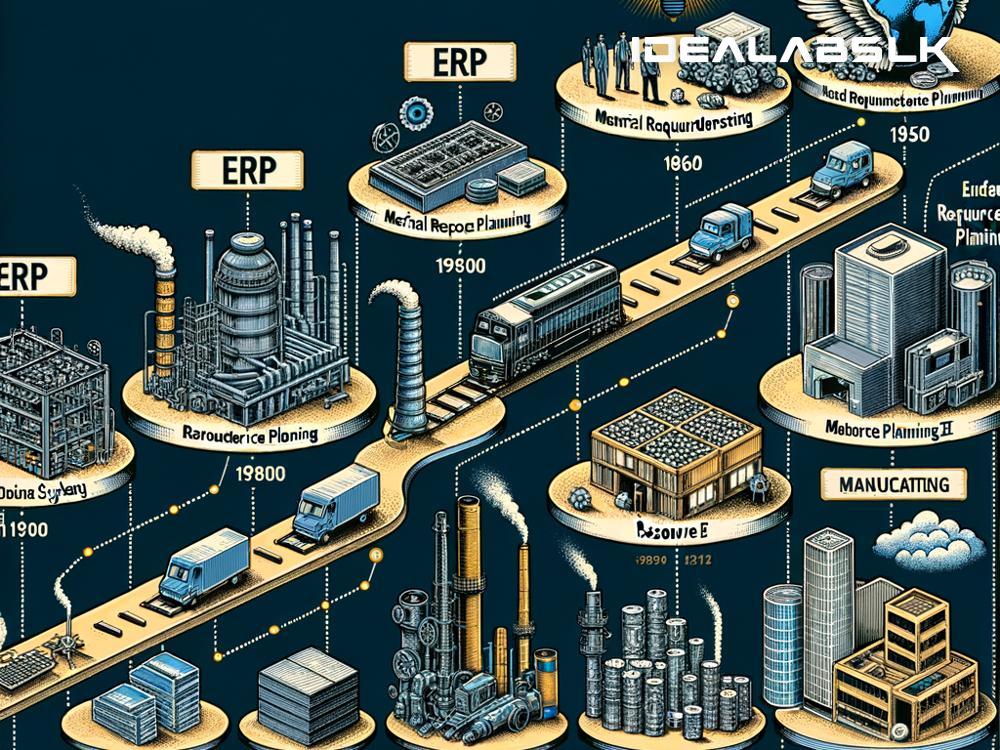The Evolution of ERP Systems: A Simple Walk Through History
Introduction
Can you imagine a world where business operations are managed without the sophisticated tools we take for granted today? Think about the complexities of running a multinational corporation or even a mid-sized business using just pen, paper, and telephone. It sounds almost prehistoric, right? Well, that was the reality before the invention of ERP (Enterprise Resource Planning) systems. This remarkable technology has revolutionized how businesses operate, making processes smoother and more efficient. Let's embark on a journey through time to explore the evolution of ERP systems.
The Birth of ERP: The 1960s
Our story begins in the 1960s, with the advent of the first simple computer systems designed to assist with inventory management. These were the ancestors of today’s ERP systems. Back then, they were known as Inventory Management and Control systems. Their primary function was to monitor stock levels and manage inventory - a groundbreaking advancement at the time, particularly for the manufacturing sector.
The 1970s: MRP Systems Emerge
As technology progressed during the 1970s, these systems evolved into what was known as MRP (Material Requirements Planning) systems. MRP was a significant leap forward because it went beyond simple inventory management. It enabled companies to plan their production schedules more effectively by forecasting demand and thus determining the materials required for manufacturing. This period marked the first instance where technology began to play a central role in orchestrating multiple business processes.
The 1980s: The Rise of MRP II
The 1980s witnessed the birth of MRP II (Manufacturing Resource Planning), which took the capabilities of MRP systems to a whole new level. MRP II integrated additional functions like marketing, finance, and human resources into the planning process. This integration was a game-changer, offering a holistic view of the company’s operations. For the first time, different departments within an organization could effectively coordinate and optimize their workflows, leading to unprecedented operational efficiency.
The 1990s and ERP’s Debut
The term "ERP" was first coined in the 1990s. By this time, the technology had evolved to encompass almost all core functions of a business, not just those related to manufacturing. ERP systems could now manage a wide array of operations, from finance and human resources to sales and customer service. This era marked the transition from business software that solely focused on production and inventory to comprehensive suites that managed the breadth of an organization's activities.
The 2000s: Expansion and Internet Integration
Entering the 21st century, ERP systems continued to expand in functionality and scope. A significant development was the incorporation of internet capabilities, which propelled ERP into the realm of e-business. Companies could now operate and manage their systems in real time over the internet, enhancing collaboration, access to information, and decision-making processes. This period also saw the diversification of ERP solutions to cater to specific industries, offering more customized tools and functionalities.
The 2010s and Beyond: Cloud Computing and Advanced Analytics
The most recent evolution in the history of ERP systems has been their migration to the cloud and the integration of advanced analytics and artificial intelligence. Cloud-based ERP solutions offer greater flexibility, scalability, and cost-effectiveness, making advanced ERP capabilities accessible to not only large enterprises but also small and medium-sized businesses. Meanwhile, the integration of analytics and AI has transformed ERP systems into not just tools for managing business operations, but also powerful platforms for strategic planning and forecasting.
Conclusion
The journey of ERP systems from simple inventory tools to comprehensive, cloud-based platforms is a testament to the power of technology and innovation. From enhancing operational efficiency to facilitating strategic decision-making, ERP systems have become integral to the success of modern businesses. As we look to the future, it's clear that ERP technology will continue to evolve, bringing new levels of optimization and efficiency to the business world. The history of ERP systems is not just a story of technological advancement but a narrative that mirrors the evolution of business practices and strategies in the digital age.

